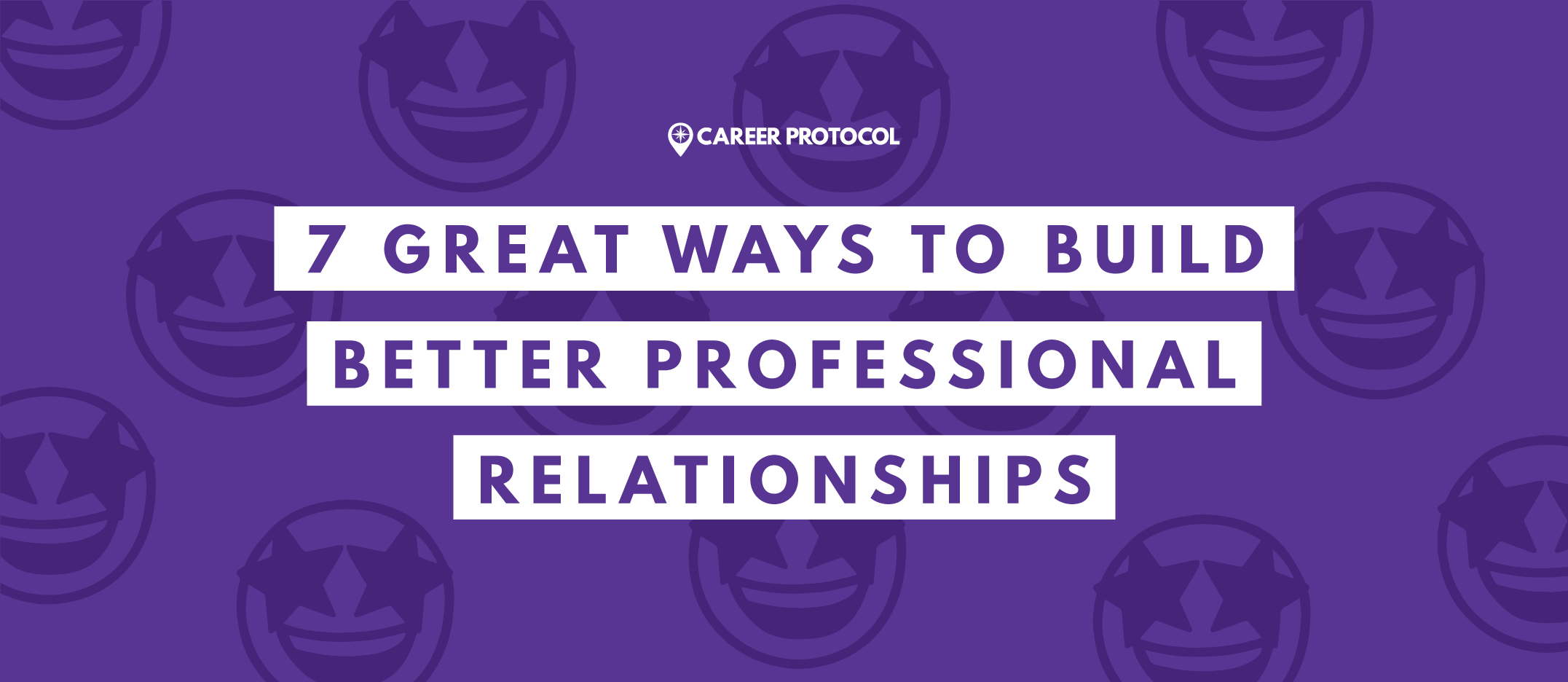Excellent networking is all about creating positive shared experiences. Do you know how to build great professional relationships?
Once you’ve mastered things like personal introductions, making new connections, and initiating a follow-up, the later phases of networking are more about sharing rather than exchanging, creating rather than dividing, and experiencing rather than reaching an outcome.
Shared experiences and shared connections are each an end in themselves. As you create more of them, you’re naturally fostering a more understanding, empathetic, and interconnected world. But cultivating these experiences will also do wonders for your career satisfaction and success.
There are many ways to forward your career through effective networking practices. Keep reading to learn some valuable practices for building your network and fostering shared experience.
1. Conduct Informational Interviews
Informational interviews give you the chance to learn by example from people who have become successful in your industry—people whose advice and experiences could help you on your career path. They help you exercise due diligence on firms that interest you, learn about potential job opportunities, and inform your goals. And, even more importantly, they’re a simple and powerful way to deepen professional friendships.
Take an active role in your professional growth by asking someone you admire for an informational interview. It could be someone from a firm you’re interested in joining or a school you’re thinking about applying to.
If you’re not sure what I mean by an informational interview, it’s when you sit someone down (or get them on the phone) for 20 minutes, tell them a little about yourself, and then ask insightful questions about the company they work for and the work they do.
If you do it right, you will not only gain valuable insider information, but you will also deepen your relationship with your new contact and open the door for next steps. In order to pull off an awesome interview, be sure to respect their time, ask great questions, and listen.
2. Make Requests of your professional relationships (gracefully)
You’ll know from my article about 5 ways to improve your networking skills last networking article (or, if you don’t, check it out) that there’s a time and place to make requests. Hint: It’s not in the first interaction—or usually even the second or third. So what should you do if a connection is still relatively new and in a position to help with something you need now? How can you make a request gracefully?
For starters, here’s an important fact about human nature that you already know, but probably forget from time to time.
3. Let people be of service
People actually love to be of service.
Asking someone to assist you with something they’re able to provide can actually be a contribution to them, too. But for new connections, it’s important not to overreach.
Trust your intuition in these circumstances. There are definitely times to make bold, direct requests, but in most cases, if the contact is very new, your best bet is to follow these three principles:
1. Be appropriate.
This simply means don’t ask for too much. Keep the request appropriate to the duration of your acquaintance and the level of friendship and trust you have established.
2. Be transparent.
That said, if what you ultimately want is a job opportunity with the company at which your connection works, don’t hide your agenda. Include your aspirations as part of your request while still asking for something appropriate to your level of familiarity (like an informational interview or an introduction to a colleague in the team that’s hiring).
3. Be willing to earn it.
If someone vouches for you within their own personal network, they bear a certain amount of reputational risk on your behalf. If you’re asking someone to open a door for you, you must be willing to earn that opportunity. Instead of asking for the opportunity itself, it might be better to ask for the chance to earn it.
4. Add Value to Your Network
One problem you might have when you’re trying to add value to the people in your network is that your agenda is getting in the way. Remind yourself that deep, meaningful relationships are an end in themselves and not simply a means to get ahead.
Another problem you might have is that you just don’t know what you have to offer. The more senior and important your new contacts are, the harder it is to understand the value you can give them. Crazy as it may sound, one of the best things you can do for the people in your network is give them the chance to add value to your life and then follow up with vivid appreciation.
I’m serious about this! Let people be of genuine service and then help them fully understand and experience the positive impact they have had. Consider that your job is not to add value or receive value, but rather to create shared positive experiences and shared connections. Showing your appreciation takes the transaction out of a favor and turns it into a shared experience.
5. Build Shared Positive Experiences
When it comes to new connections, you have to start small. A shared positive experience can be as simple as informing someone about something you love or listening to them and asking questions that let them expand on a passion. What matters is that these kinds of encounters created shared positive emotion.
To keep the shared positive experiences going, you could: smile, find a common interest, learn something new from someone, teaching someone something you know, or engage in a lively open-ended debate. You could even connect someone with a new contact or share a favorite resource. These kinds of small steps will lead naturally to the bigger ones.
I’ll leave you with three final bits of advice for creating positive experiences with all those awesome people in your network:
Let’s have a conversation!
Start your journey with Career Protocol today.

Angela Guido
Student of Human Nature| Founder and
Chief Education Officer of Career Protocol

Want to know why a fab LinkedIn profile is essential, even if you plan to get your next job on campus? Here's a guide to looking good online!

Writing great recommendations isn’t rocket science. If you just keep a few principles in mind, you too can be a ninja recommender!

Finding the right recommender if you're not in a “standard” career position can be tricky. Here are recommenders to avoid and some great alternatives!

